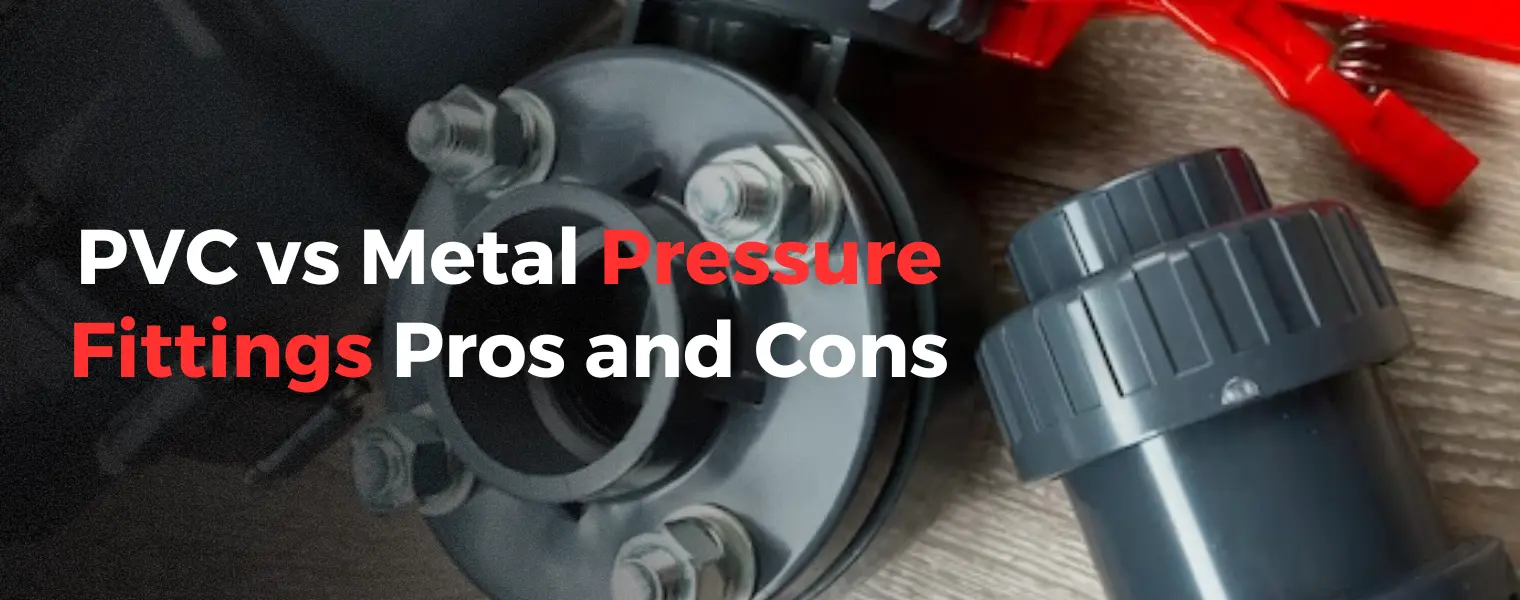
Choosing the right pressure fittings is crucial for plumbing and industrial applications. PVC (polyvinyl chloride) and metal pressure fittings are two common options, each with its own set of advantages and disadvantages. In this blog post, we'll compare PVC and metal pressure fittings to help you make an informed decision for your specific needs.
PVC pressure fittings are highly resistant to corrosion, making them ideal for use in environments with exposure to moisture and chemicals. They won't rust or corrode over time.
PVC fittings are significantly lighter than metal counterparts. This weight advantage simplifies handling, reduces installation time, and lowers transportation costs.
PVC pressure fittings are generally more cost-effective than metal options. They offer excellent performance without breaking the budget, making them a popular choice for various applications.
PVC fittings are known for their ease of installation. They can be quickly joined using PVC cement, requiring minimal specialized tools. This simplicity often reduces labor costs.
PVC has excellent insulation properties, making it an excellent choice for applications where electrical conductivity is a concern.
PVC fittings have lower temperature tolerance compared to some metals. They may become brittle and prone to cracking at very low temperatures, limiting their use in extremely cold environments.
While suitable for many applications, PVC fittings have limited pressure ratings compared to certain metal fittings. They may not be suitable for high-pressure systems.
Metal pressure fittings, such as brass or stainless steel, can withstand higher temperatures than PVC. They are suitable for hot water and high-temperature applications.
Metal fittings are known for their high-pressure ratings, making them suitable for demanding applications where PVC may not suffice.
Metal fittings are incredibly durable and long-lasting. They can withstand heavy usage and harsh environmental conditions, including UV exposure.
Metal fittings are available in various alloys, each with specific properties. This versatility allows you to choose the most suitable material for your specific application.
Unlike PVC, metal fittings are susceptible to corrosion, especially in acidic or corrosive environments. This can lead to maintenance and replacement costs over time.
Metal pressure fittings are heavier than PVC counterparts, making transportation and installation more labor-intensive.
Metal fittings are generally more expensive than PVC fittings, both in terms of materials and labor for installation.
Installing metal fittings may require specialized tools and techniques, increasing installation complexity and costs.
The choice between PVC and metal pressure fittings depends on your specific application requirements and budget constraints. PVC fittings are cost-effective, corrosion-resistant, and easy to install, making them suitable for a wide range of applications. On the other hand, metal fittings offer high-temperature tolerance, high-pressure ratings, and exceptional durability, making them the preferred choice for demanding industrial applications. Polyfab provides the best PVC pipes . Contact us to know more.